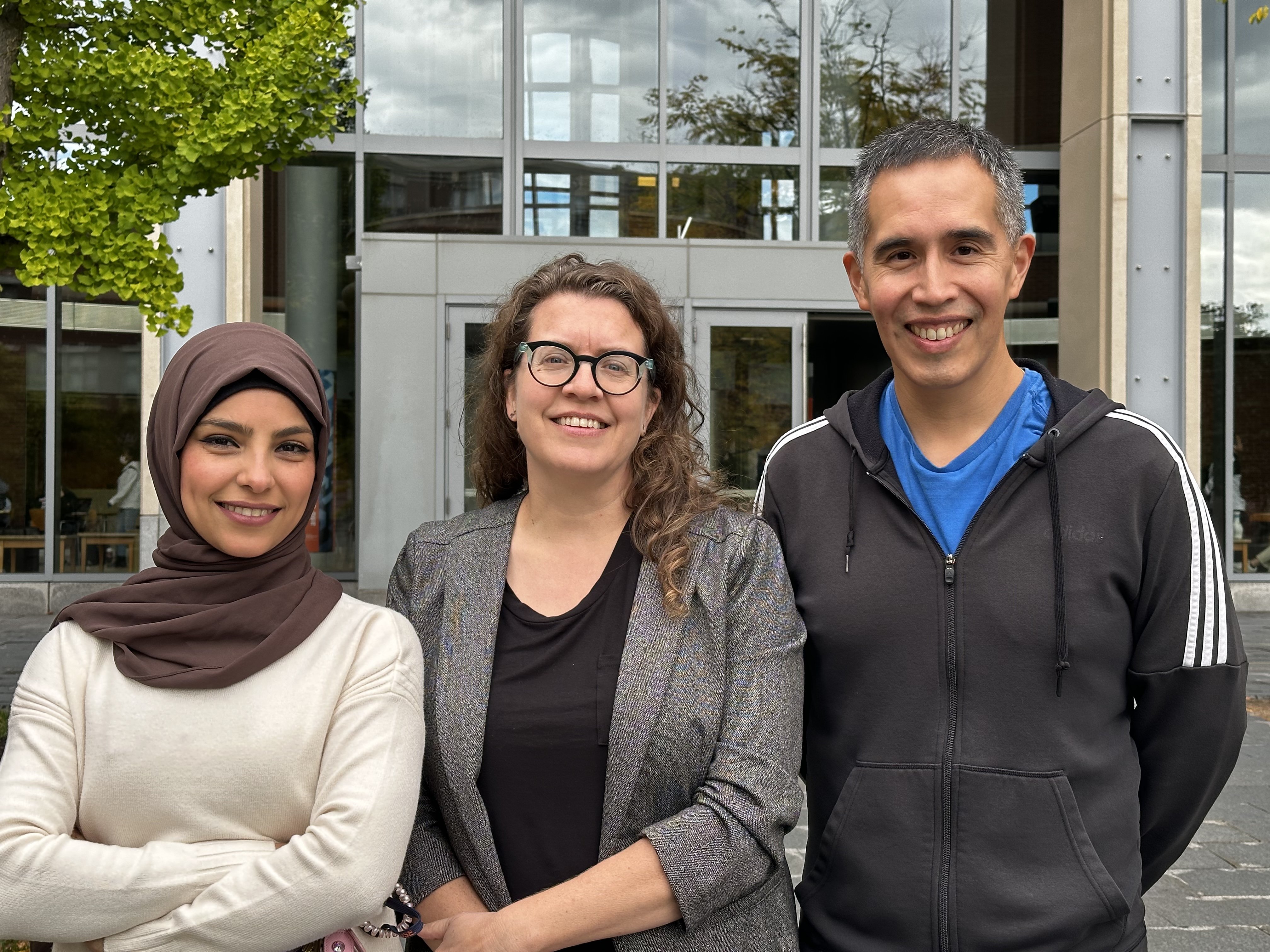NSF Grant in Biology Aims to Boost STEM Student Retention through Hands-On Research
Professors in the Department of Biology have received a Research Experiences for Undergraduates site grant to host students from other institutions for immersive summer research at Syracuse.

As technology advances, companies face a growing need to hire graduates skilled in science, technology, engineering and mathematics (STEM). However, finding the ideal candidate can be difficult at times due to a limited pool of applicants. Part of the reason for this is that 1 in 3 students who originally declare as a STEM major change their field of study before they graduate, according to research from the National Center for Education Statistics. One way to keep STEM students engaged in their major is through hands-on research, where they can apply their theoretical knowledge to address real-world challenges. In 1987, the National Science Foundation launched the Research Experiences for Undergraduates (REU) program to help attract and retain STEM students by funding experiential learning opportunities during the summer.
Three biology faculty members in the College of Arts and Sciences (A&S) have been awarded that department’s first three-year REU site grant, “Using Microscopy to Understand Form and Function Across Biological Scales (MicroFFABS).” Associate professor of biology Heather Coleman serves as the grant’s principal investigator (PI), with associate professor of biology and chemistry Carlos A. Castañeda and biology professor of practice Abrar Aljiboury collaborating as co-PIs. The award will fund 10 undergraduate students per year (30 in total) from other institutions to conduct summer research at Syracuse University in biology and biology-affiliated labs alongside faculty.
While this is the first REU site grant in biology at Syracuse, faculty from the department have collaborated on similar programs through the Biomaterials REU site in the College of Engineering and Computer Science and the chemistry REU site in A&S. Other active REU site grants at the University include the iSchool’s REU and the Louis Stokes Alliance for Minority Participation (LSAMP) summer REU programs.
According to Coleman, a primary objective of the team’s project is to promote diversity within the STEM field and offer meaningful hands-on research experiences to students who may not have access to such opportunities at their home universities. They will focus on recruiting domestic students from minority-serving institutions, primarily undergraduate institutions and community colleges.
“Students who participate in research are more likely to see themselves as scientists and remain in STEM,” says Coleman. “Through this 10-week summer program, students from diverse backgrounds will have the opportunity to conduct research, join a cohort of summer undergraduate researchers across the university, participate in professional development and present their research.”
Beginning in 2025, REU students will conduct 10 weeks of summer research with one of 14 biology and physics faculty mentors. Research will focus on using microscopy to understand form and function across biological scales. This entails developing insight into the relationship between the shape, size and structure of an organism and exploring how these characteristics enable functions that support the organism's survival.
“Each student’s project will incorporate microscopy into innovative biological research,” says Coleman. “All REU participants will gain exposure to microscopy methods, including fluorescence and super-resolution, using state-of-the-art instrumentation to address questions that cross multiple scales of biological research.”
The team notes that this REU will take advantage of the University’s strengths in microscopy, and the core facilities and resources including the Blatt BioImaging Center (directed by biology professor Heidi Hehnly and managed by co-PI Aljiboury) and the BioInspired Institute’s Materials Research Core (directed by Eric Finkelstein, Ph.D.).
Potential student projects include: investigating molecular and cellular mechanisms underpinning neurodevelopment; identifying the connections between form, function and environment in animals that interface with and attach to surfaces; examining mechanisms driving plant responses to climate change; elucidating mechanisms of protein quality control to understand the assembly and disassembly of biomolecular condensates; and understanding how cells self-organize and develop.
The MicroFFABS program will host their first cohort of undergraduates in the summer of 2025. They will begin accepting applications in November 2024 through the NSF ETAP site.
Featured
Heather Coleman Associate Professor
Carlos Castañeda Associate Professor
Abrar (Abbi) Aljiboury Professor of Practice and Manager of the Blatt BioImaging Center
